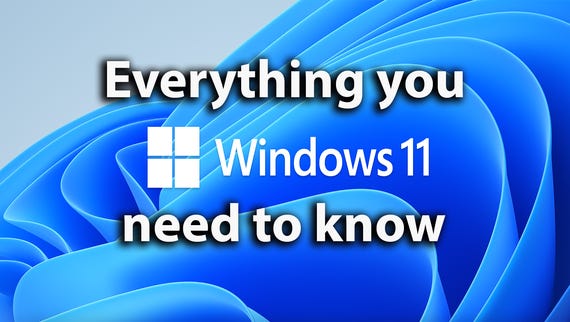![]()
Ed Bott
for The Ed Bott Report
| August 27, 2021 — 17:00 GMT (18:00 BST)
| Topic: Windows 11

Windows 11: Everything you need to know
Watch Now
Weeks ahead of the official release of Windows 11, Microsoft today announced minor changes to the minimum system requirements for its new operating system. Owners of relatively recent PCs running 7th Gen Intel Core CPUs or first-generation AMD Zen CPUs who were hoping for a partial reprieve should prepare to be disappointed.
Newer CPUs are designed to support virtualization-based security features that prevent dynamic code injection into the Windows kernel and also increase the security of kernel-level drivers. “The United States Department of Defense (DoD) requires virtualization-based security on Windows 10 for their devices,” Microsoft argues. “While we are not requiring VBS when upgrading to Windows 11, we believe the security benefits it offers are so important that we wanted the minimum system requirements to ensure that every PC running Windows 11 can meet the same security the DoD relies on.”
The unspoken piece of the CPU puzzle here is the vulnerability of older CPUs to security exploits collectively known as Spectre and Meltdown. Although Intel and Microsoft have collectively shipped microcode updates and Windows system-level patches that mitigate the impact of those exploits, there’s no cure, and the patches are known to affect system performance.
Microsoft says there’s no connection, but it’s a remarkable coincidence that the list of vulnerable Intel CPUs includes virtually all processors designed and sold in 2017 and early 2018 that are unsupported on Windows 11. As I noted at the time, “[W]hile software patches can mitigate the effects for now, the long-term solution involves fundamental changes to CPU design that could take years to reach the market.”
Windows 11 has advanced hardware security. Here’s how to get it in Windows 10 today
A January 3, 2018 bulletin from the security experts at CERT (a partner of the U.S. Department of Homeland Security) was even more blunt: The only solution for Spectre/Meltdown attacks? “Replace CPU hardware. The underlying vulnerability is primarily caused by CPU architecture design choices. Fully removing the vulnerability requires replacing vulnerable CPU hardware.”
Nearly four years later, it looks like Windows 11 is going to play a major role in that wholesale, wrenching replacement cycle. Anyone who intends to continue using older hardware will remain on Windows 10, with that operating system supported until October 2025.
What happens after that is anyone’s guess.
Windows 11
Microsoft stands firm on hardware requirements
There’s a loophole for ‘unsupported’ hardware
Test build: More fixes and a new ‘Microsoft 365’ widget
Windows 11 FAQ: Everything you need to know
How to get Windows 11’s advanced security in Windows 10 today
Windows 11 is the COVID-19 vaccine for your PC
OK Microsoft, you win: I’m buying a Windows 11 PC
Will your PC run Windows 11? Even Microsoft can’t say for sure
Related Topics:
Enterprise Software
![]()
Ed Bott
for The Ed Bott Report
| August 27, 2021 — 17:00 GMT (18:00 BST)
| Topic: Windows 11